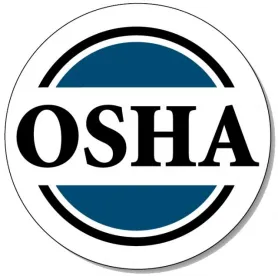The Eleventh Circuit Court of Appeals recently had the opportunity to remind employers not to ignore training employees on safety. Martin Mechanical Contractors, Inc. v. Secretary, U.S. Department of Labor, No. 17-12643 (March 27, 2018).
In late 2015, a heating, ventilation, and air conditioning (HVAC) contractor was installing an HVAC system on the flat roof of a warehouse in Georgia. The installation was to take place adjacent to several unguarded skylights covered only with plastic sheeting. While the onsite foreman had fall protection equipment in his truck, the employees did not wear any fall protection equipment while on the roof. These circumstances ended in tragically: one of the workers fell through a skylight and died as a result of his injuries.
The Occupational Safety and Health Administration (OSHA) cited the employer for a willful violation of 29 C.F.R. § 1926.501(b)(4)(i) for failing to protect its employees from falls. The administrative law judge concluded the supervisor’s actions supported a willful classification in that he demonstrated a “reckless disregard for the safety of his crew.” The employer appealed.
To support a willful classification, OSHA must show either (1) the employer knew of the standard and consciously disregarded it or (2) it exhibited such reckless disregard for the employees’ safety that the employer would not have cared that the conduct violated the standard. Evidently, the supervisor claimed ignorance of the law, and the court analyzed whether the willful classification could be supported under the second standard.
The court of appeals was unimpressed by the employer’s arguments. The court noted the supervisor was well aware of the danger posed by the unguarded skylights in that he warned his employees to be careful around them. The supervisor also testified it was his practice not to use fall protection equipment on flat roofs. The supervisor neither instructed anyone to wear fall protection equipment nor provided his employees with the fall protection equipment he had in his truck. Thus, the Court concluded, while the supervisor did not know of the standard’s requirements, he exhibited such reckless disregard for employee safety that he would not have cared that the conduct violated the standard.
This is where all employers may want to take heed. The court went on to observe that the supervisor’s “unfamiliarity serves, if anything, only to underscore the inadequacy of [the employer’s] training program. To hold that such inadequacy—and the resulting unfamiliarity—precludes classification of a violation as willful would perversely allow [the employer] to use its ineffective training as a defense against OSHA’s most serious charge.” The court upheld the willful classification.
Needless to say, a willful citation can have far-reaching ramifications for an employer—from tort liability and criminal penalties for the injury or death to inability to secure future work. While training may seem trivial and time consuming, doing it just might prevent a willful citation and possibly save a life.



 />i
/>i

